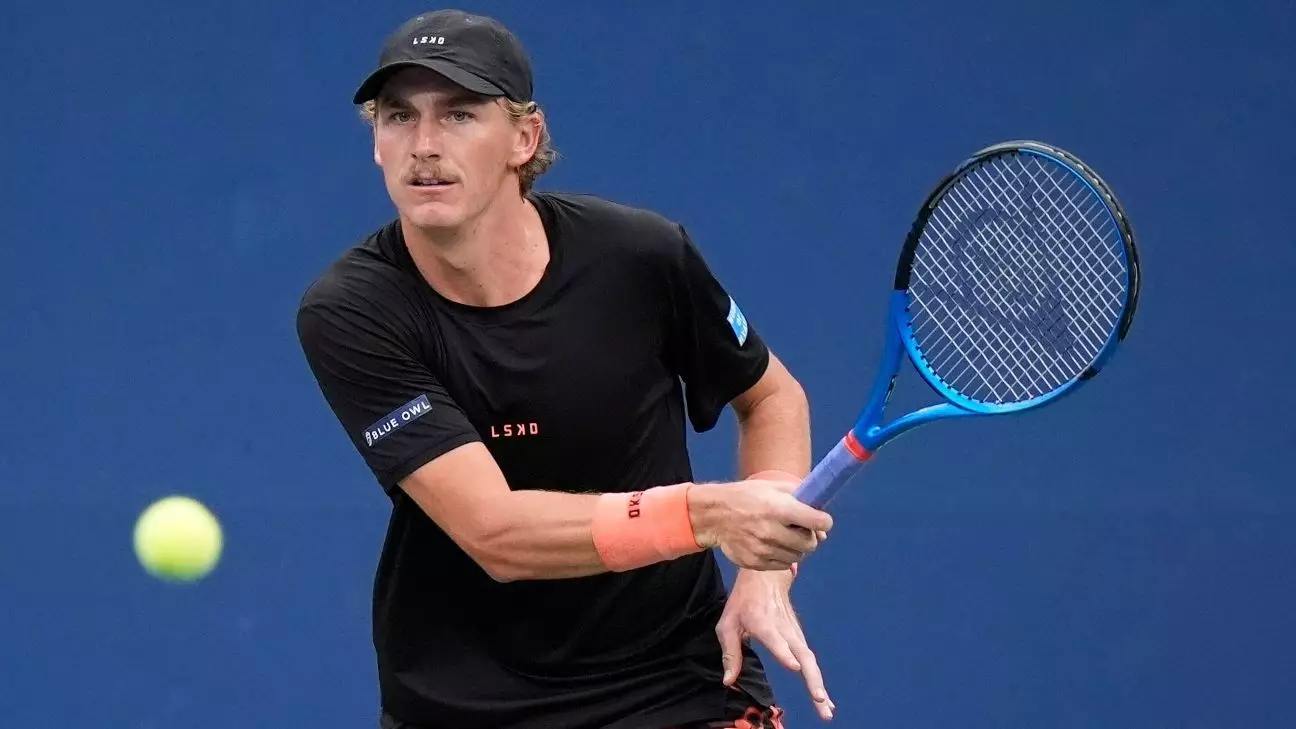In a striking development that sends ripples through the tennis community, two-time Grand Slam champion Max Purcell has voluntarily entered a provisional suspension under the sport’s anti-doping regulations. Announced by the International Tennis Integrity Agency (ITIA), this serious measure is a reminder of the stringent rules governing professional athletics. Purcell, a talented doubles player from Australia, faces the repercussions of violating significant anti-doping guidelines, a scenario that not only impacts his career but also casts a shadow over the integrity of the sport.
The ITIA disclosed that the suspension is a direct response to Purcell’s admission of violating Article 2.2 of the Tennis Anti-Doping Program, which pertains to the use of a Prohibited Method. The provisional suspension took effect on December 12, and interestingly, the ITIA has not specified the duration of this voluntary hiatus. Such ambiguity raises questions about the extent of Purcell’s infraction and the potential implications for his future in tennis. While the time served during this provisional suspension will count towards any potential future penalties, the lack of clarity leaves fans and analysts alike speculating on what lies ahead for the athlete.
Currently positioned at No. 12 in doubles and with a history of high-stakes victories, including the U.S. Open title alongside Jordan Thompson, Purcell’s recent developments paint a concerning picture. His impressive run at Wimbledon with partner Matthew Ebden in 2022 only adds to the weight of this situation. However, with his name absent from the Australian Open entry lists and no signs of receiving a wildcard, the immediate professional future for Purcell appears uncertain. Ranking No. 105 in singles, his absence raises alarms, as it’s unclear whether this decision and its consequences influenced his missing participation in the upcoming grand slam event scheduled to commence on January 12.
Purcell’s case is not an isolated incident. The tennis world has been grappling with doping violations, with notable figures such as Iga Swiatek and Jannik Sinner also bearing the weight of scrutiny. Swiatek accepted a one-month ban due to a positive test for the banned substance trimetazidine, while Sinner was exonerated after a controversial doping allegation. These events collectively present a troubling trend in the sport, questioning the preventative measures in place and the pressures athletes face in maintaining integrity while achieving excellence.
Max Purcell’s voluntary suspension underlines the necessity for reflection on the ethical frameworks within professional sports, particularly tennis. The ramifications of doping violations extend beyond individual careers; they challenge the broader integrity of the sport and its regulations. As the tennis community awaits further developments in Purcell’s situation and similar cases, it serves as a crucial reminder that vigilance against doping is essential, not only for compliance but to preserve the spirit of competition that drives sportsmanship at all levels.


Leave a Reply